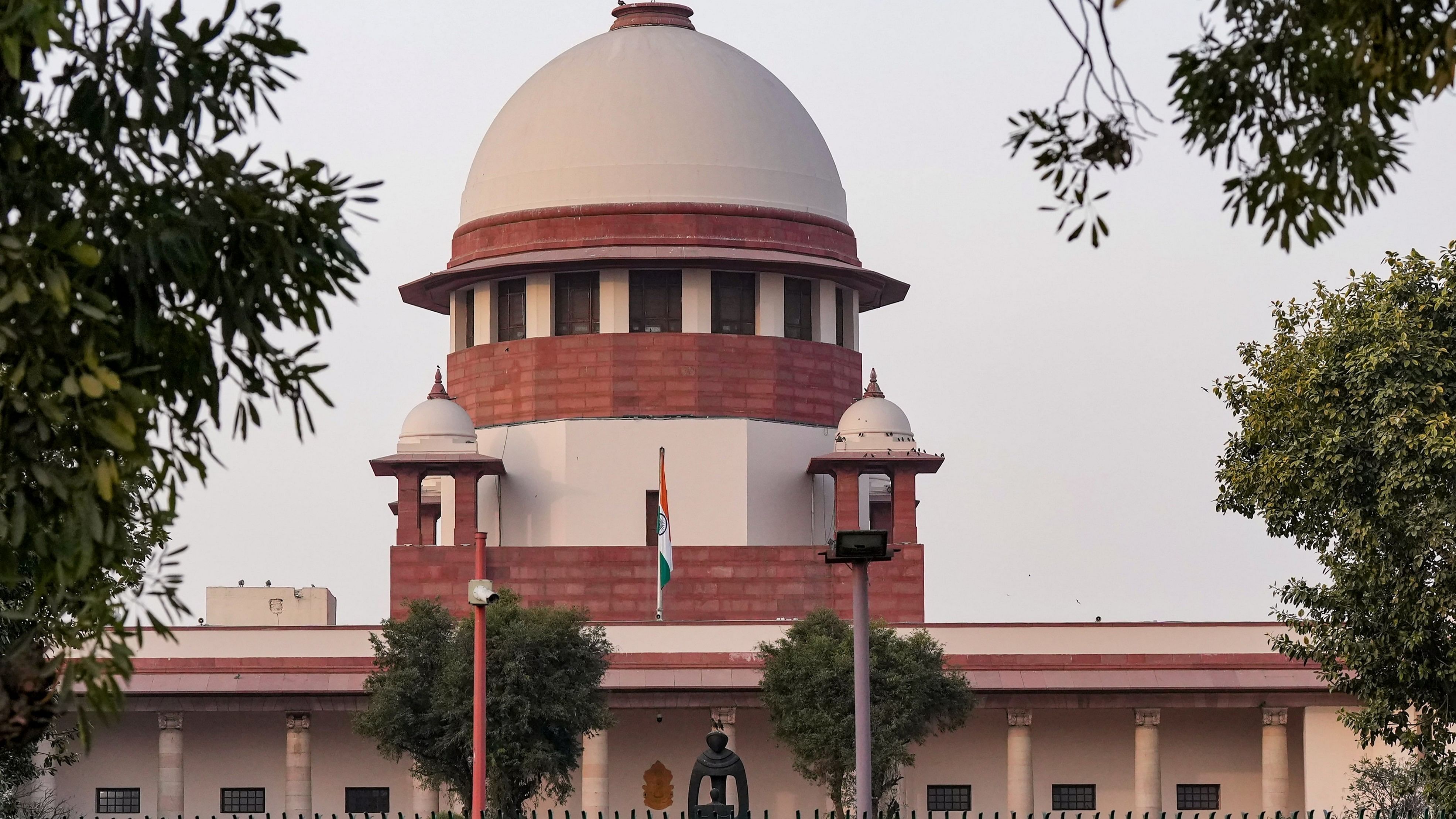
The Supreme Court of India.
Credit: PTI File Photo
New Delhi: The Supreme Court has said it is time that frivolous and vexatious proceedings are met with due sanctions in the form of exemplary costs to dissuade parties from resorting to tactics, which add up to the pendency and delay in disposal of cases crying for justice.
A bench of Justices B R Gavai and K V Vishwanathan said the legal profession has an important role to play in the process and any proceeding or application which prima facie lacks merit should not be instituted in a court.
"Of late we notice pleadings or petitions with outrageous and ex facie unbelievable averments are made with no inhibition whatsoever. This is especially so in some family law proceedings, both civil and criminal. Reading some of the averments, we are left to wonder whether at all the deponents were conscious of what has been written purportedly on their behalf, before appending their signatures," the bench said.
The bench opined these "misadventures" directly impinge on the rule of law.
"The victims of crime, the accused, and the society at large have a legitimate expectation that justice will be available to the parties within a reasonable time. It is beyond cavil that speedy and timely justice is an important facet of rule of law. Denial of speedy and timely justice can be disastrous to rule of law in the long term," the bench said.
Even if the parties involved in a case themselves, with no valid justification attempt to delay the proceedings, the courts need to be vigilant and nip any such attempt in the bud instantly, the bench said.
"The administration of justice feeds on the faith of the citizenry and nothing should be done to even remotely shake that faith and confidence," the bench said.
The court made these observations in a postscript in its judgment on Monday, setting aside the Madras High Court's 2021 judgment directing for further investigation in a murder case of 2013.
Acting on appeal by accused K Vadivel, the bench held further investigation cannot be permitted to do a fishing and roving enquiry when the police had already filed a charge-sheet and the very applicant for further investigation, the wife of the deceased, K Shanthi has not whispered about anything new in her evidence.
"There must be some reasonable basis which should trigger the application for further investigation so that the court is able to arrive at a satisfaction that ends of justice require the ordering/permitting of further investigation," the court said.
It held the high court's cryptic order for further investigation, long after the final arguments were concluded on October 19, 2019 in the trial court, was "absolutely unwarranted" since no valid justification was given for it.
After the High Court's order, the additional charge-sheet also came to be prepared on December 02, 2021.
The court said while it is true that delay in trial will cede to the pursuit of truth, however, a distinction should be made between cases where there exist genuine grounds to hold up the proceedings and cases where such grounds do not exist.
"This case is a classic example of the latter category," the bench said.
The FIR was filed on March 31, 2013 and the chargesheet on July 11, 2013.
At the fag end of the trial in October 2019, on the eve of the final arguments, the first round of applications under Section 311 (for recall of witnesses) of CrPC came to be filed, which culminated in its dismissal in December, 2019.
Soon thereafter in January, 2020, virtually the same grounds which had been rejected earlier were rehashed in the form of an application under Section 173(8) CrPC on behalf of the wife of the deceased.
"The State, which had hitherto opposed all the applications up to the High Court, turned turtle and stoutly supported the wife of the deceased in this court without offering any tenable justification as to how the earlier investigation which had arrayed eight accused for trial lacked credibility," the bench said.
The court noted the net result has been that all the stakeholders in the process have contributed to the delay and in spite of eleven years having elapsed after the incident, the trial has still not concluded.
